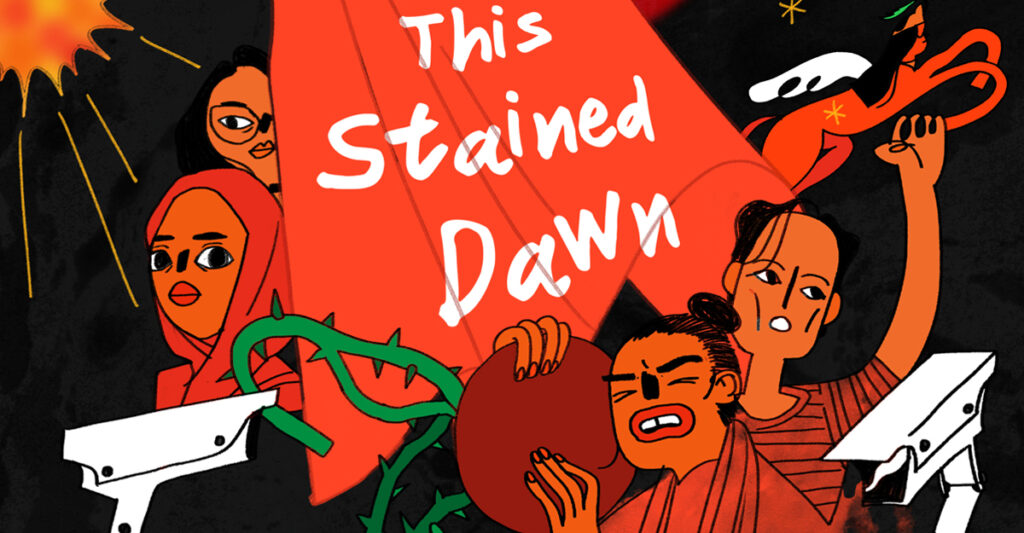Noorjehan Safia Niaz is the founder of the Bharatiya Muslim Mahila Andolan (BMMA), which is one of the SuPWR case studies in India. In this blog post, Noorjehan shares her reflections on how Muslim women, through BMMA, have created systems, structures and processes to develop their own Muslim Family Law and claim legal justice.
Why a movement of Muslim women?
Since the inception of the Bharatiya Muslim Mahila Andolan (BMMA) in January 2007, many people have questioned why Muslim women need to organise themselves. The reasons are many. Firstly, no community can develop if its women remain behind, and, conversely, women cannot progress unless the larger community also takes the onus to support her in playing her role in public life.
The vision of BMMA is to create conditions within Indian society where the Muslim community, and especially Muslim women, can eradicate their own poverty and marginalisation and live a life of equality, justice and with respect for human rights. BMMA believes in the values of democracy, secularism, equality, non-violence, human rights, and justice, as enshrined in the Constitution of India. It believes in the inherent capacity of women to lead and ameliorate the social, economic, political, legal and educational backwardness. BMMA also seeks to carry out positive, liberal, humanist and feminist interpretations of religion to ensure justice and equality for Muslim women, and opposes forces of fascism, capitalism, communalism and imperialism in all its forms.
To achieve its vision and objectives, BMMA, through its well organised administrative structure, reaches out to Muslim women in villages, towns and cities and organises them into pressure groups under the leadership of a committed woman leader. The emergent leadership of Muslim women at the national, state, district, block, and village level undertakes programmes and activities on education, livelihood, law reform and health services.
Nikaahnama: The first step
The journey began in 2003 when the All India Muslim Personal Law Board released a nikaahnama even before BMMA was launched formally. This nikaahnama of the Board allowed triple divorce, wife beating and a wife’s obedience to her husband. In response, in 2005 the Mumbai chapter of BMMA (then Hukook-e-Niswaan) rejected this nikaahnama and created its own version, recognising women and men as equal partners in marriage with both having equal rights to divorce through a process of arbitration. Additionally, the new version did not allow polygamy and stipulated a high mehr (dowry) amount.
In May 2005, seven couples solemnised their marriages under the new nikaahnama prepared by Muslim women. In 2008, Naish Hasan and Imraan set another benchmark and got married under the BMMA nikaahnama. Farheen Syed renewed her marriage vows in 2010 with Muzammil Syed. Noorjahan Dewan, BMMA state leader of Gujrat, solemnized 35 marriages under BMMA’s nikaahnama in Ahmedabad.
BMMA’s draft of Muslim family law: The second step
In 2008, the women of BMMA embarked on a mission towards legal justice. More than 400 consultations were held across the country with women, ordinary citizens, lawyers, academicians, scholars of Islam, etc. Our interactions with ordinary Muslim women during the process were encouraging, and as meetings and consultations unfolded in state after state, it was very clear that Muslim women wanted a law that ensured their legal protection, dignity and rights in matters of marriage and family. The first draft of the BMMA Muslim family law, released in 2014, was borne out of these consultations.
In a nutshell, this draft stipulates:
- Legal minimum age of marriage of 18 for a Muslim woman and 21 for a man.
- Prohibits polygamy, nikah halala and muta
- Minimum mehr amount must be equivalent to the groom’s annual income.
- Talaak-e-Ahsan is the legal method of divorce where arbitration is mandatory and unilateral divorce by husband is invalid.
- Mother and father as natural guardians of a child.
- Custody of children is decided based on the best interest of the child and child’s consent.
- Wife gets a share of the marital property.
- Daughters get equal share of the parent’s property.
BMMA’s structures: The third step
In 2013, BMMA launched Aurton ki Shariah Adalats (ASA) as legal aid and guidance centres for Muslim women. ASAs provide an alternative space for mediation and conflict resolution, as the existing spaces (such as Sharia Adalats (run by male Qazis) and the formal court system)) are often inaccessible in multiple ways. ASA volunteers are trained as mediators to help the women victims. They follow the draft law prepared by BMMA, and take advice from other NGOs, clerics and lawyers if needed. Volunteers undertake home visits and joint family meetings, and engage with police, community leaders and other stakeholders. They are also trained in feminist counselling processes to provide emotional support to the victim. ASAs function in three cities and every year they provide more than 1,000 women with legal and psychological support.
In 2015, BMMA launched its own school, called the Darul Uloom-e-Niswan, which is a registered organisation that trains women to become Qazis. Muslim women prepared the entire syllabus and training module. Qazis were certified by Noorjehan Safia Niaz and Zakia Soman, who also certified each other as Qazis. In total, 22 Qazis trained by BMMA exist in India today. Qazi Zubeda Khatoon carried out a khula (divorce given by a woman) and Qazi Hakima Khatoon solemnised a marriage.
In the absence of a codified law, through BMMA, Muslim women have:
- drafted their own law;
- drafted their own nikaahnama;
- established legal aid centres; and
- trained women Qazis.
In this ecosystem, women are the change agents. They are not just demanding their rights from the state, but have created their own systems, structures and processes as an alternative to the patriarchal religious groups that have misled the community. BMMA is the structural change that has happened in the community guided by feminist values and universal values of equality, justice, freedom, compassion, wisdom and democracy. They hope to see these alternatives become mainstream in the coming days.
